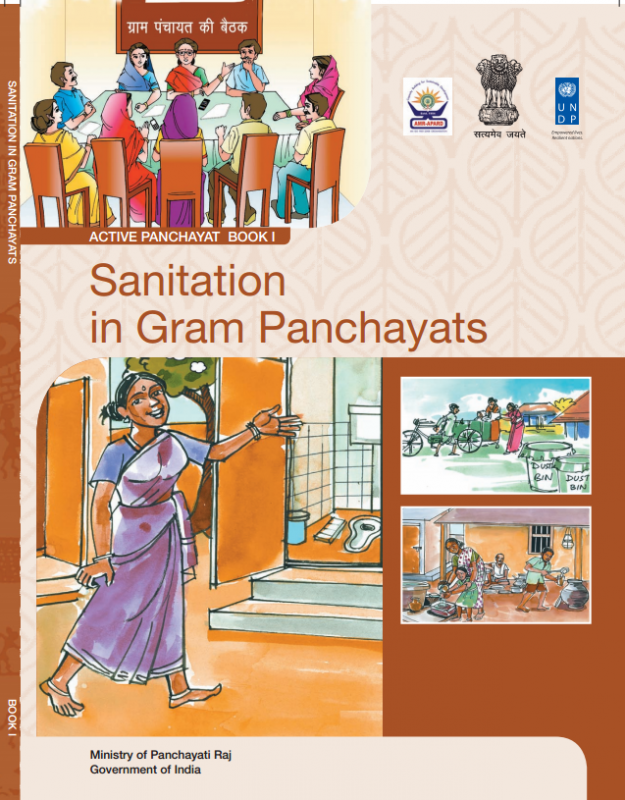- Markets, finance and governance
- Government initiatives and regulations
- Indian Government initiatives: Swachh Bharat Abhiyan (SBA or SBM) and others
- Sanitation in Gram Panchayats, India (local self-government institution at the village or small town level in India)
Sanitation in Gram Panchayats, India (local self-government institution at the village or small town level in India)
9745 views
Sanitation in Gram Panchayats, India (local self-government institution at the village or small town level in India)
United Nations Development Programme in India has issued a publication tittled Sanitation in Gram Panchayats*, and is available at: www.in.undp.org/content/dam/india/docs/D...tation%20in%20GP.pdf
This was disseminated by E-Source Sanitation News of 12 Nov 2014.
The publication aims to assist elected representatives and government functionaries in developing and promoting sanitary habits in the villages. It guides them on how to keep their village clean, end open defecation, manage liquid and solid waste in an eco-friendly manner and pay attention to hygiene in schools, anganwadis and public places.
Filled with nice cartoons, the publication addresses one important question: Will just construction of toilets solve the (sanitation) problem? The answer, given in the publication, which is quite interesting, is: Not exactly, because sanitation is a habit and changing human behaviour is a complex process. In the past, just emphasizing the construction of toilets without a proper behaviour change strategy has resulted in toilets being unused or used as store rooms, bathrooms, kitchens, etc.
The publication would be useful to the government functionaries in developing countries.
F H Mughal
* According to Wikipedia a Gram Panchayat is:
This was disseminated by E-Source Sanitation News of 12 Nov 2014.
The publication aims to assist elected representatives and government functionaries in developing and promoting sanitary habits in the villages. It guides them on how to keep their village clean, end open defecation, manage liquid and solid waste in an eco-friendly manner and pay attention to hygiene in schools, anganwadis and public places.
Filled with nice cartoons, the publication addresses one important question: Will just construction of toilets solve the (sanitation) problem? The answer, given in the publication, which is quite interesting, is: Not exactly, because sanitation is a habit and changing human behaviour is a complex process. In the past, just emphasizing the construction of toilets without a proper behaviour change strategy has resulted in toilets being unused or used as store rooms, bathrooms, kitchens, etc.
The publication would be useful to the government functionaries in developing countries.
F H Mughal
* According to Wikipedia a Gram Panchayat is:
(note added by moderator)A Gram Panchayat is a local self-government institution at the village or small town level in India and has a Sarpanch as its elected head. Under British Colonial rule, the role of panchayats were strengthened, whereas under post-independence they were given little right of co-determination. After attempts to deal with local matters at the national level, panchayats were reintroduced as institutions of local self-governance in 1992.[1] As of 2002[dated info] there were about 265,000 gram panchayats in India. The gram panchayat is the cornerstone of the panchayati raj system. A panchayat is needed for every town and village.
F H Mughal (Mr.)
Karachi, Pakistan
Karachi, Pakistan
Attachments:
-
 Gramcover.png
(Filesize: 767KB)
Gramcover.png
(Filesize: 767KB)
Please Log in to join the conversation.
You need to login to reply
Share this thread:
- Markets, finance and governance
- Government initiatives and regulations
- Indian Government initiatives: Swachh Bharat Abhiyan (SBA or SBM) and others
- Sanitation in Gram Panchayats, India (local self-government institution at the village or small town level in India)
Recently active users. Who else has been active?
Time to create page: 0.425 seconds








